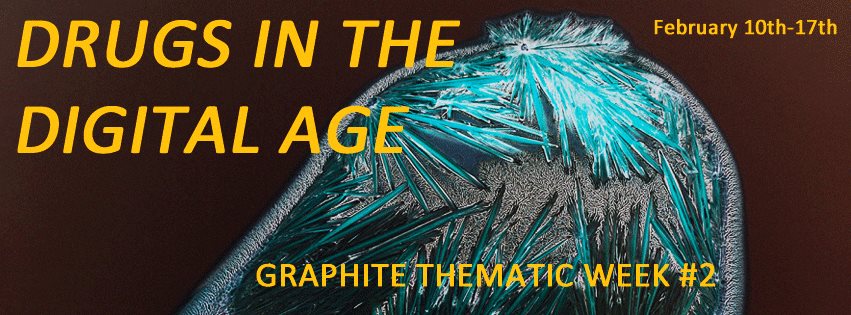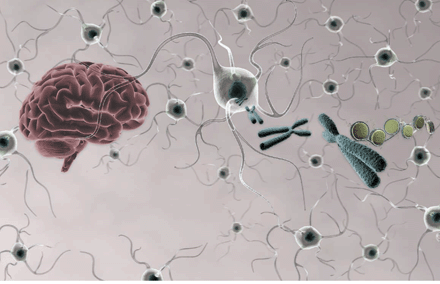Conventional biology would have it that post conception, our genetic inheritance is set in stone. Each of us receive a set of chromosomes from our parents that are made up of genes (strips of coded DNA), and these genes do not change, ever. This has been the golden rule of inheritance for decades, but increasing insight into epigenetics, the study of heritable changes to gene activity that is not caused by changes of DNA, is changing the traditional framework of inheritance as well as our conceptions of personal and ethical responsibility.
Our cells all contain the same DNA code but this doesn’t determine what will be done with it. Instead, carbon and hydrogen compounds called methyl groups act as the supervisors. They dictate to the cell which genes are to be expressed and therefore determines what set of functions that cell will carry out within the body. The extent to which genes are expressed are determined by histones : proteins around which DNA wraps itself. Histones determine how tightly DNA is wound; if tighter, the genes express less, if looser, the genes express more. A common analogy used to describe the relationship between these two biological phenomena and gene expression is that methyl groups are like light switches, while histones are like light switch knobs; the former either turns the light on or off, the latter determines the intensity at which the light shines. Our epigenome is comprised of these histones and methyl groups.
Although our genome does not change over the course of our lifetimes, our epigenome does. Environmental factors such as smoking, anxiety and eating habits can harbor consequences to our epigenome, possibly resulting in the development of disease and other cellular abnormalities. Epigenetics has been known by geneticists since the 1970s, but its heritability was not understood until recently. Initially, geneticists believed epigenetic information was stripped away from an embryo’s genome in its early formation, allowing for new information to be generated. Geneticists have now discovered that often the worst epigenetic tags do remain on an embryo’s genome and are passed on in all of their damaged glory to next of kin.
Now that epigenetics is better understood, it raises an array of questions concerning personal ethical responsibility due to its transgenerational nature. This precise aspect is researched by Marcus E Pembrey, a member of the Clinical and Molecular Genetics Unit at the Institute of Child Health at the University College of London. Pembrey himself began to question the rules of inheritance in the 1980s when, frequently meeting with families that had unusual genetic conditions, his interest was sparked by a syndrome called Angelman. Characterized by developmental disabilities, jerky movements, and a frequently happy demeanor, Angelman’s syndrome is caused by the deletion of a key sequence of DNA from Chromosome 15. Yet this same deletion also causes Prader-Willi syndrome, a medical condition characterized by floppy movements at birth and an insatiable appetite that often leads to obesity. Here laid a paradox: the same deletion could cause two, very different medical conditions, and convinced Pembrey that the traditional view of inheritance was flawed.
Source: progress.org.uk/orgfiles/
“Up till now inheritance is just the genes, the DNA sequence. I suspect that we are going to be able to demonstrate that inheritance is more than that.” — Marcus Pembrey
Continual research led to Pembrey’s discovery that the origin behind the chromosome 15 which contained a deletion mattered. If the chromosome containing the deletion was inherited from the mother, the child developed Angelman’s syndrome; if inherited from the father, the child developed Prader-Willer syndrome. For Pembrey, the significance lay in the fact that the gene somehow knew where it came from, and that there was more to inheritance than simply coded sequences of DNA. Epigenetics would prove to be the causality behind the correlation.
Snap out of our foray into history and we find ourselves potentially facing an existential crisis. To claim that epigenetics encourages us to be more responsible requires we first establish a reason to care. Moral philosopher Peter Singer’s presents a convincing argument as to why we should in his 1971 essay, “Famine, Affluence, and Morality.” Singer posits that, if it is in an individual’s power to prevent harm without sacrificing anything of moral significance, then it is his or her moral obligation to do so. He presents a paradigmatic case in which a group of individuals observe a child drowning. General consensus would have it that it is each individual’s moral obligation to save that child. By the same moral intuition, he argues, it is every individual’s moral obligation to reduce human suffering regardless of geographical distance. Perhaps this can be applied to generational distance as well. Herein lies the question of whether individuals could be morally obligated to provide the best possible epigenome for their next of kin. Why shouldn’t the same moral intuition that underlies our instinct to save a drowning child not apply to our descendants?
Hypothetically speaking, let’s say someone of oracle status were to inform us that if we were to stop smoking today, our child could be spared lung cancer at the age of twenty-two. How many of us would do it? Would small wisps of ingrained altruism win out against a more tantalizing inclination towards hedonism, or can we even conjecture at all?
Epigenetics certainly presents compelling moral quandaries for both geneticists and laymen alike. Where genetics encourages us to take care of our bodies for ourselves, epigenetics emphasizes the impact of our actions on an intrinsic level. What is certain is that the threads that connect us to each other are far more numerous and complex than we could have ever imagined.


